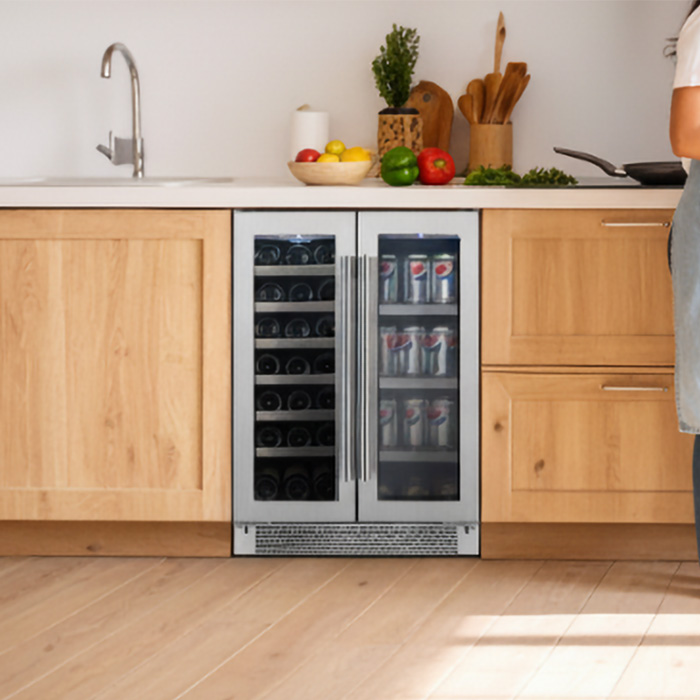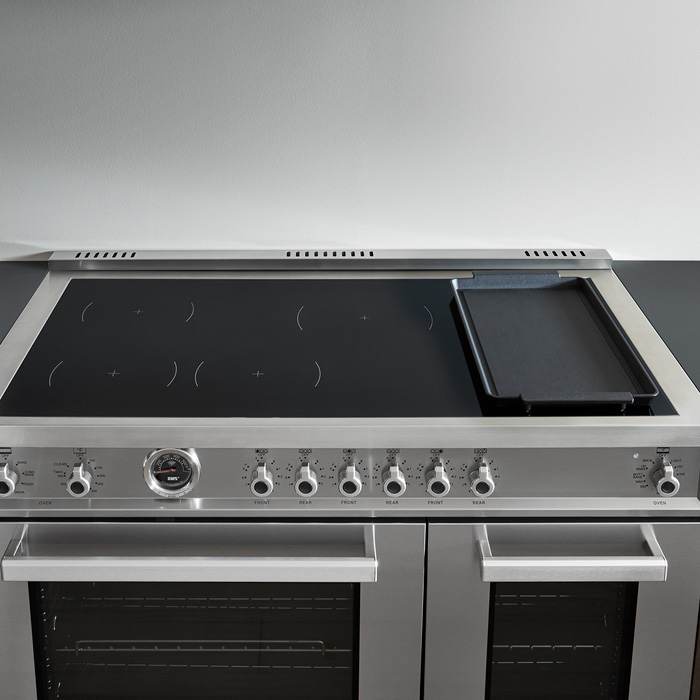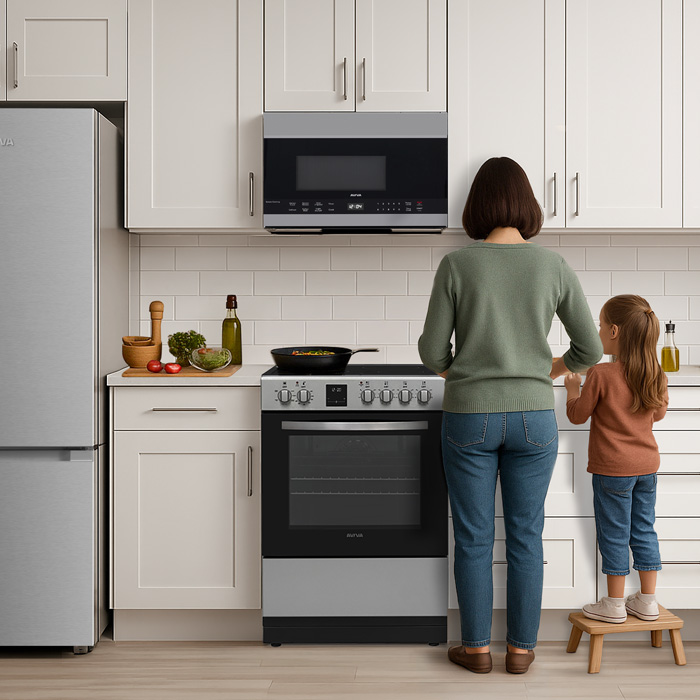
How to choose the best ventilation hood
05/04/2018
Do you need to clean your dishwasher?
04/06/2018Your recipe for success in the kitchen starts with the right oven!
Gas, Electric or Induction - which stove is right for me?
When you’re looking for a new stove, you want to make sure you choose the best cooking appliance to suit your needs. Do you love tradition and familiarity, or are looking for something modern in the kitchen? It can be tricky to decide which oven or stovetop is the right look for your kitchen. But it doesn’t end there. The debate goes to forms of heating, and you will have to weigh up gas versus electric versus induction cooking.Which is best for you? Read on for our guide to the pros and cons to help you compare the options.
About Electric Stoves – the trusted standard
Electric stoves have come a long way. Modern designs have a sleek, glass cooktop, which is easy to wipe clean. This makes a big difference compared to old-fashioned models with burner rings that would get crusty. Electric stoves are probably the least expensive option of the three. They are also the most commonly used. They are very simple to operate, and cheaper to install. Most models also offer additional storage space beneath the oven, which is great for storing pots, cookie sheets and pans. The downside of electric stoves is that they take longer to warm up to the temperature you need and, because they also take longer to cool down, electric ovens will emit residual heat. Even after you have finished cooking, unless you want the food to continue cooking, you must remove it completely from the cooktop or oven. This can be difficult in a small kitchen or if you are cooking multiple dishes, and space is an issue.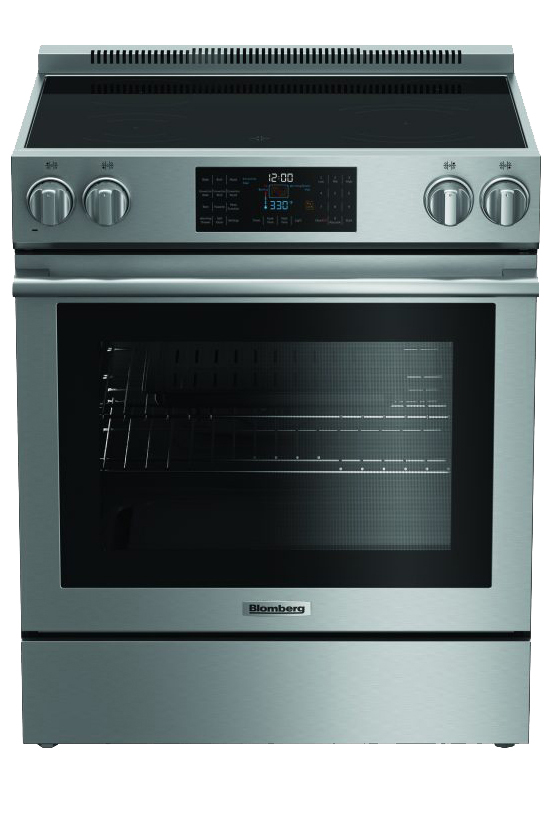
Blomberg’s 30-inch Slide-In Electric Range is a standout model, particularly because of its special features. It is a self-cleaning oven that offers extra internal capacity for roasts or commercial-sized baking sheets, and has a larger cooking zone than standard ovens. It also includes special pre-set options to help you achieve cooking perfection with baking break, pizza and roasts.
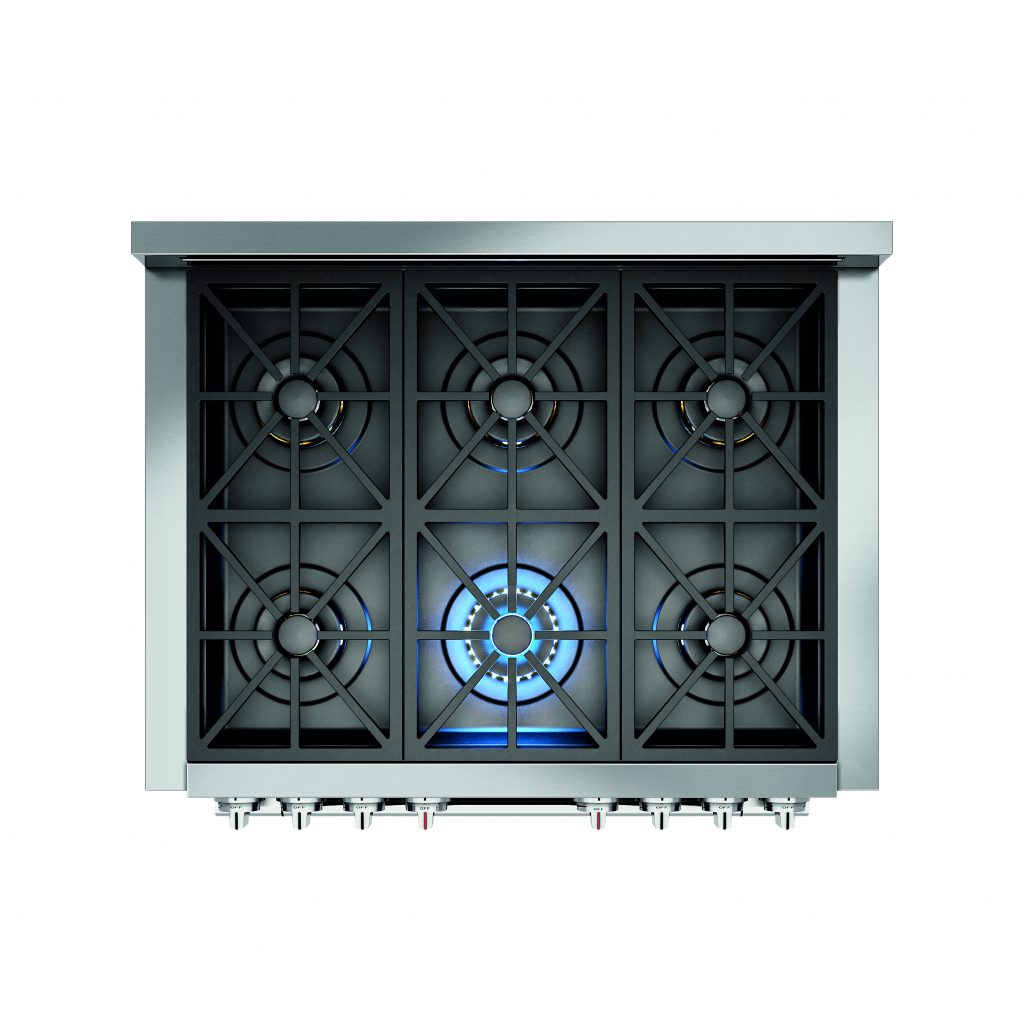
About Gas Stoves – compliments to the chef
For many cooks, gas is their preferred choice of oven. When you switch on a gas stove, you immediately get a constant flame that you can adjust visually. This helps you control the heat while you are cooking. Because of the ability to tinker with heat levels the proof that gas is a great option is, as they say, in the pudding. Food tends to retain moisture when cooked in a gas oven, which makes it a favorite.Operating and energy costs are often lower with a gas stove than with electric. But gas stoves can be more expensive to install. Especially if your kitchen is not already connected to a natural gas line.
Some people are concerned about safety with gas, but many of today’s ranges come with a system that will automatically re-ignite the flame, if it goes out. Fulgor Milano and Blomberg both have this safety feature in their gas stoves. Bertazzoni and Fulgor have an in-built thermocouple, which is a safety function that will shut off the gas in your stove if the flame goes out.
Fulgor Milano gas cooktops are an elegant, sophisticated addition to any kitchen. Their “Sofia” model comes in gas, dual fuel and induction, and has an amazing array of features to keep both the amateur and professional chefs happy at home.
Fulgor Milano gas cooktops are an elegant, sophisticated addition to any kitchen. Their “Sofia” model comes in gas, dual fuel and induction, and has an amazing array of features to keep both the amateur and professional chefs happy at home.
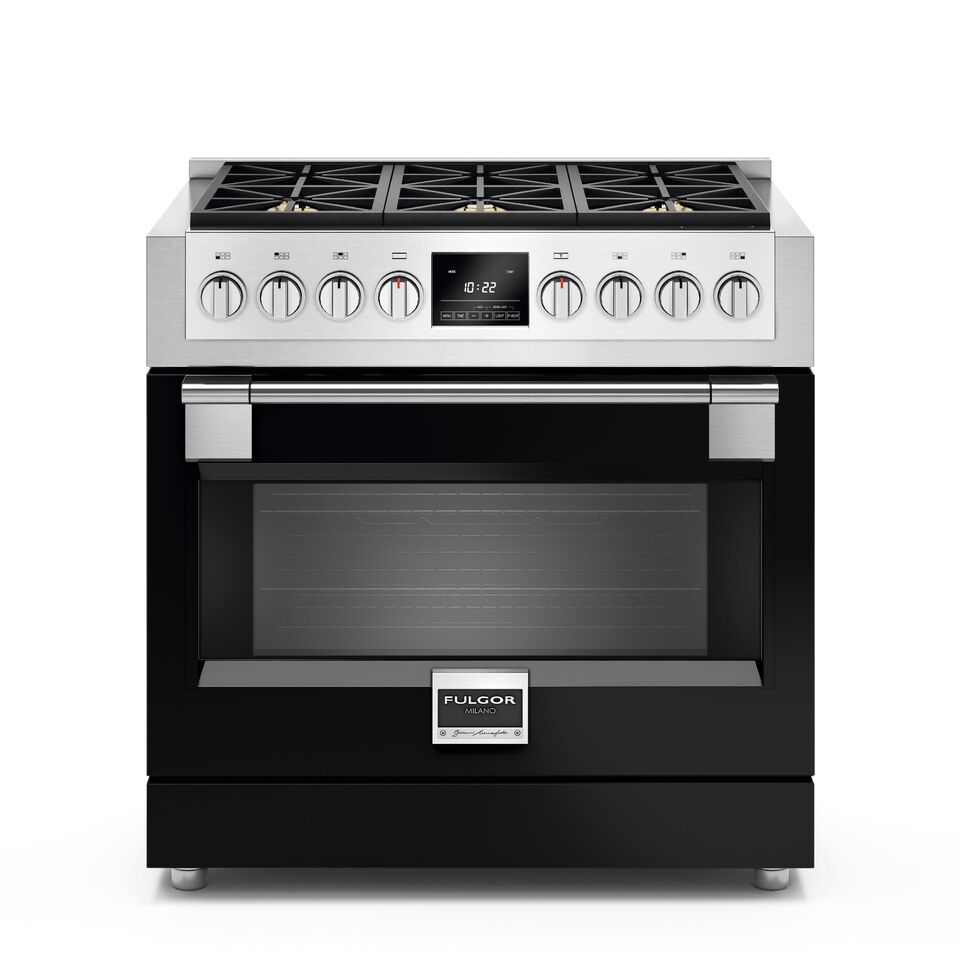
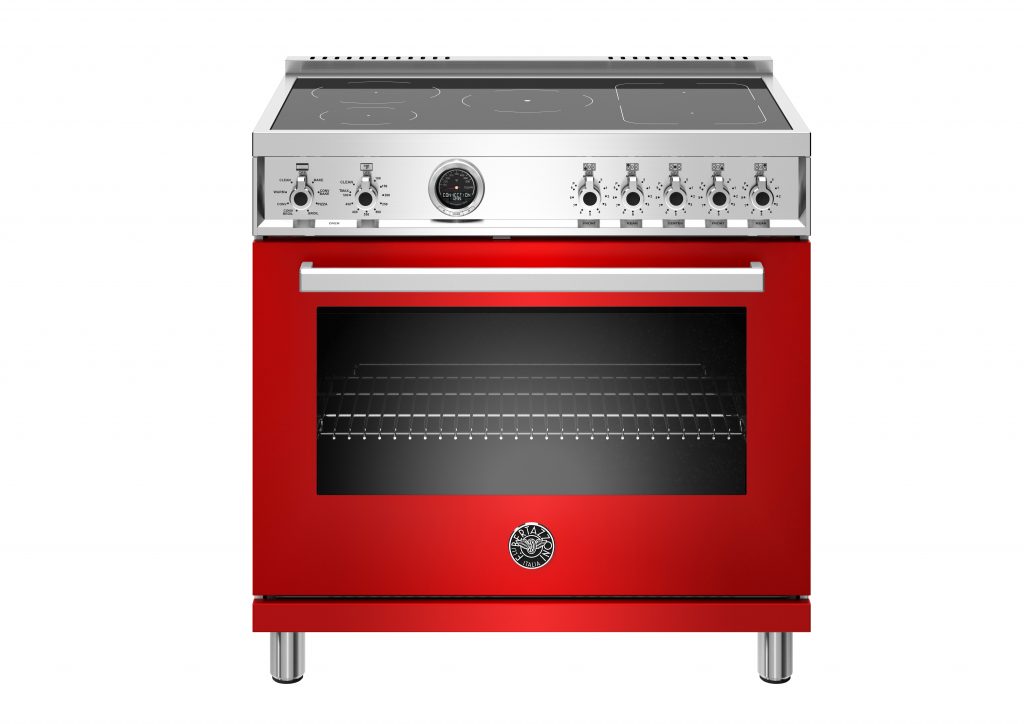
Induction Stoves – quick cooking in a flash
Induction stoves are favored by the chefs and cooking professionals who love the precise temperature control. Induction cooking actually uses technology that has been available for decades. Today, manufacturers like Bertazzoni have created stovetops which have perfected the technology and brought down the cost, making it a good option for serious cooks.The huge advantage of an induction stove is that they are fast. Very fast. An induction surface can boil water in a blink of the eye and cut minutes from the time it normally takes to cook dinner. There is no more waiting for the element to heat up. Bertazzoni induction cooking surfaces feature a booster function. This technology makes the full energy available instantaneously.
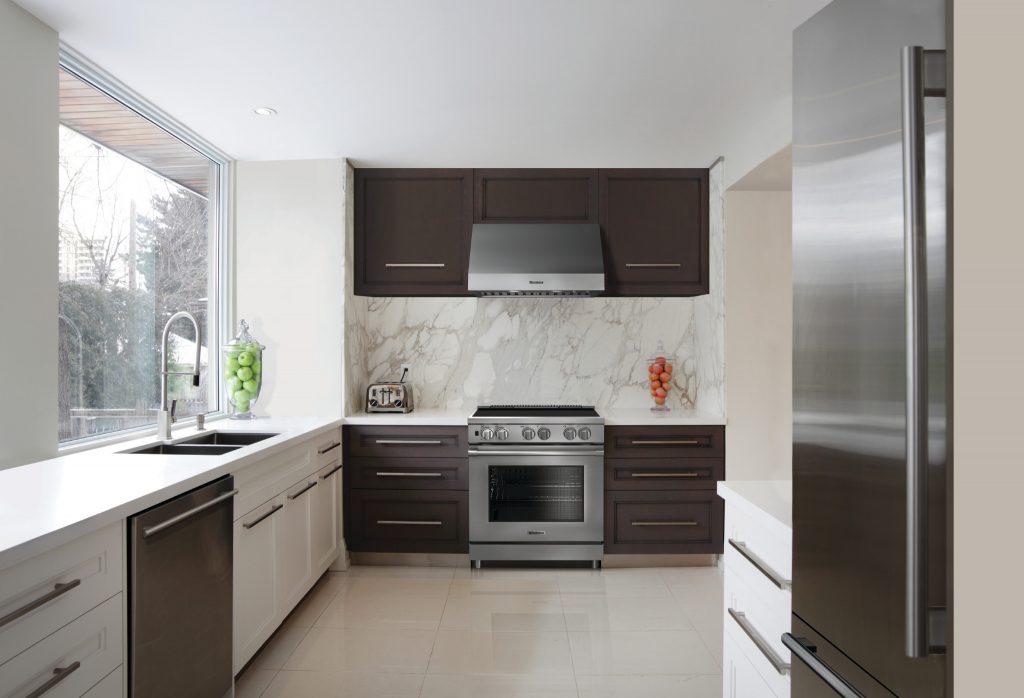
Energy efficiency is another big draw. Less heat is wasted with induction cooking than with conventional stoves. However, you do need specific cookware to work with the technology. But what you may spend on cookware, you will certainly save (and more!) in your energy bill.
But the advantages are many. No risk of burns or injury when you touch the stove. Plus, the stovetops on the market, such as Fulgor’s range of induction cooktops, are elegant and super-efficient.
Still can’t decide?
Well, there is another option. Duel fuel ranges are a hybrid option. They consist of a gas cooktop, for precision when it comes to things like sauces, combined with an electric oven for baking or roasting. They also come in other combinations (induction cooktop, electric stove etc.) With a duel fuel range you can get the best of two worlds.Technical
Unlike gas and electric ovens, which use radiant heat, induction stoves do not actually generate any heat. That means the stovetop will not be hot to the touch. There are no heated coils and no fire. Induction stoves use an electromagnetic field to generate heat.Pros of Electric, Gas and Induction
Electric stoves are affordable and easy-to-use
Gas stoves offer excellent cooking results and are cost-efficient
Induction stoves are energy efficient, fast cooking and easy-to-clean
Things to keep in mind…
Electric stoves heat up, cook and cool down slower
Gas stoves are impossible to install without access to natural gas
Induction stoves require special cookware

